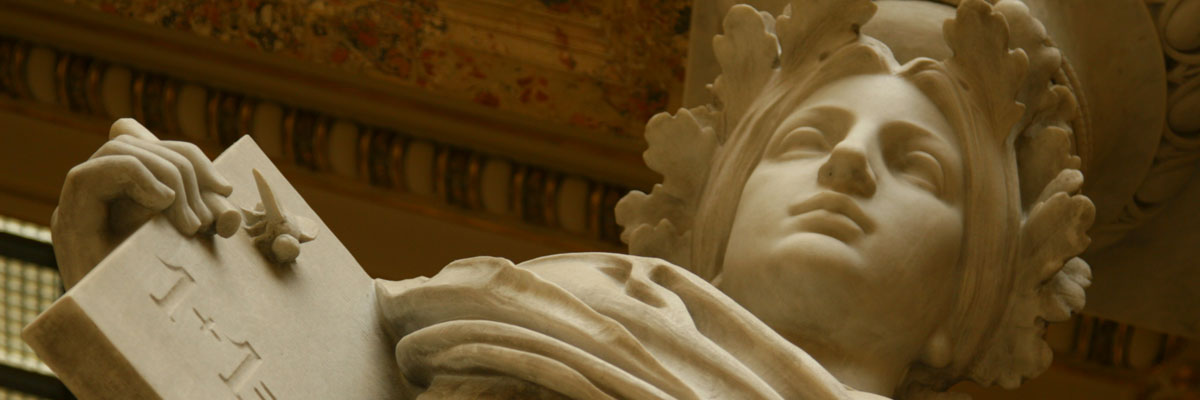
News archive
Search
Selected range: all newsScience is not just about lab coats, long equations, complex graphs, and detailed studies. It can also give rise to unique moments and unsuspected beauty. The Czech Academy of Sciences employees captured the aesthetics of science in their photos and videos as part of the in-house Photogenic Science contest. The winning entries are now on display at the CAS headquarters on Národní Street in Prague, where visitors can behold the captivating world of research at the Věda fotogenická (Photogenic Science) exhibition.
In light of the war in Ukraine, people in the Czech Republic are worried about the deterioration of their economic situation and do not harbour any hope that the crisis could make them stronger. At the same time, however, they consider themselves as being well-off and feel safe. A completely different set of results arose from an international comparative public survey conducted in Ukraine, but also in Israel, Estonia, and Georgia. At the Facets of Resilience conference on 22 November 2022, philosopher Alice Koubová presented the results of the Czech part of the survey, while the international comparison was provided by Shaul Kimhi from Tel Aviv University.
Photovoltaics, the conversion of sunlight into electricity, is currently one of the most sought-after renewable energy resources. However, around 97% of solar cells are imported from Asia, especially China. The PILATUS project, led by Martin Ledinský’s research team from the Institute of Physics of the CAS, is aimed at changing this situation. The plan is to install production lines for innovative silicon solar panels in Europe.
Why are populist parties thriving in Central and Eastern Europe today? What occupies the everyday thoughts of people inhabiting the border regions of Silesia or Galicia? Social anthropologist Johana Wyss from the Institute of Ethnology of the CAS will be exploring these issues with the help of a European Research Council (ERC) Starting Grant of almost 37 million CZK (1.5 million EUR). Johana Wyss is the seventh woman to join the ranks of 54 elite Czech scientists and scholars who have received the most prestigious European grant to date.
It begins with a discovery, it ends with its application in practice and a benefit to society. On the crossroads leading to patents and inventions stands CeTTAV, the Technology Transfer Centre of the CAS, offering guidance to CAS institutes. In an interview for the October issue of AB / Academic bulletin, Martin Smekal, head of CeTTAV, described how to support knowledge and technology transfer at the Czech Academy of Sciences.
The Facets of Resilience international conference was held in Prague from 21 to 23 November 2022. The issue of social resilience was debated by experts from the fields of philosophy, political science, sociology, psychology, as well as a judge of the European Court of Human Rights and representatives of the non-profit sector. Discussions on resilience are gaining importance in the current post-pandemic era, during which we are facing the consequences of the war in Ukraine and the energy crisis. The conference, organised by the Czech Academy of Sciences in cooperation with the National Institute for Research on Socioeconomic Impacts of Diseases and Systemic Risks (SYRI), was held within the context of the Czech Presidency of the EU Council.
In March 2021, the Fagradalsfjall volcano erupted on the Reykjanes Peninsula in Iceland. Researchers from the Institute of Geophysics of the CAS had anticipated the event and had been monitoring the area and the increasing activity for more than a year. While the volcano was coming to life deep underground, a network of seismic stations operated by the Czech Academy of Sciences collected data directly above it, allowing Czech scientists to describe, in detail, the processes that eventually led to the eruption itself. How is this data useful in our Central European environment and why are Icelandic and Czech earthquakes so strikingly similar?
The Czech Academy of Sciences (CAS) expresses deep concern about substantial human rights violations in Iran, which directly affect students from high schools and universities as well as the entire academic community. The CAS stands entirely on the side of the protesters, strongly condemns the repressive actions of the Iranian security forces, and calls for an immediate end to the state-directed aggression against its own population. The CAS hereby joins the declaration of the international organisation IHRN. A similar statement was also issued by Charles University.
Why do swallows like to keep their nests in order? And why are some females “unfaithful” and others not? What makes male swallows attractive? Researchers at the Institute of Vertebrate Biology of the CAS have been monitoring the lives of swallows for a long time. They have a unique database at their disposal which includes feather specimens from more than 6,000 birds. The story was first published in the Czech issue of the A / Věda a výzkum CAS magazine.
In modern society, it is almost impossible to steer clear of ones and zeros. Since the turn of the millennium, the world has gradually become dominated by modern technology, and we have no choice but to keep up. In an interview for the e-magazine of the CAS, AB / Academic bulletin, Magdaléna Vecková, Director of the Library of the Czech Academy of Sciences, reveals the goings-on of the Library in the digital age.
The Czech Academy of Sciences (the CAS)
The mission of the CAS
The primary mission of the CAS is to conduct research in a broad spectrum of natural, technical and social sciences as well as humanities. This research aims to advance progress of scientific knowledge at the international level, considering, however, the specific needs of the Czech society and the national culture.
President of the CAS
Prof. Eva Zažímalová has started her second term of office in May 2021. She is a respected scientist, and a Professor of Plant Anatomy and Physiology.
She is also a part of GCSA of the EU.









